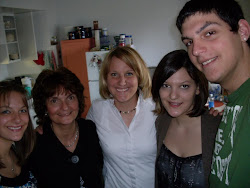Adjourning
One of the hardest
groups for me to leave was also the group I devoted the most time helping to
build. Early in my career I worked for a
year as a VISTA Volunteer with a Mental Health/Mental Retardation program. The program director had written a grant to
obtain VISTA Volunteers and shortly after getting us on board she resigned her
position and relocated. Prior to leaving
she told us her vision was to develop a puppet show to provide education about
mental disabilities to the community. The
volunteers bought into the vision. To realize the vision we spent much energy on the forming
stage of getting to know each other, the agency staff and getting agency staff on
board to “buying into” our goals and developing clear directions regarding the
project (Abudi, 2010). In conjunction with agency staff, community members,
a recording studio, and other agencies we all spent countless volunteer hours
writing a script, making puppets and a stage, writing and recording songs and
practicing, practicing, practicing! We
progressed into a cohesive, well developed team and developed strong friendships. We celebrated the success of the project
after each performance; however we did not formally “adjourn” prior to the team
members moving off into different directions (Abudi, 2010). Perhaps we each considered our “adjournment”
the sad good-byes we bade each other as the VISTA project ended.
I have been
contemplating the question, “How do you imagine that you will adjourn from the
group of colleagues you have formed while working on your master’s degree in
this program?” and have not formulated an answer. It seems like yesterday that I was brushing
my forehead while exclaiming, “Half way there”!
We share so many personal stories and have grown so much while pursuing
our master’s! My first thought is that
most school “adjournments” are celebrated with a graduation ceremony. My second thought is that we should incorporate
what we’ve learned about team development and begin with the forming stage of
discussion with each other and developing objectives/goals to plan for an
adjournment celebration and start to think about the roles we will each take to
meet our goal (Abudi, 2010).
I would like to take
this opportunity to thank my colleagues for the support you continuously
provide me and for sharing your personal stories. I am a better person for learning to listen
through reading your postings and blogs.
The lessons I learned from each of you are inexpressible! Thank you!
Special thanks go
out to a colleague that shared her story of an acting group she participated in
while in college (Beene, 2012). Your
story sparked my memory of the VISTA project I described above. Until participating in such a group, it is
hard to fathom the effort and commitment involved.
References
Beene, H. T. (2012). Discussion Board, Communicating and Collaborating in the Early Childhood Field (EDUC - 6165
- 1), week 6

